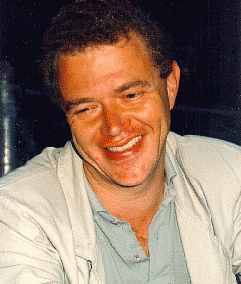George Fai

Fai, George
Professor Emeritus

gfai
 330-672-3771 (FAX: 2959)
330-672-3771 (FAX: 2959)
Research:
Nuclear Theory
Projects
The major objective of Prof. George Fai's nuclear theory research program is to explore the properties of the quark-gluon plasma (QGP), a high-energy phase of matter where quarks and gluons play the role of elementary constituents. The understanding of this strongly-interacting phase is important not only for nuclear and high-energy physics, but also for progress in astrophysics and cosmology. Research is focused on hard probes, rare products of violent scatterings of the quarks and gluons (partons) contained in the incoming nuclei, as diagnostic tools of the properties of the QGP. This requires the study of parton distributions in nuclei, the application of scattering theory and field-theoretical methods in quantum chromodynamics (the fundamental theory of the strong interaction), and the understanding of how final-state quarks and gluons form composite hadrons observable in today's complex detectors. The goals of the program are aligned with experimental studies carried out at the Relativistic Heavy Ion Collider (RHIC) in Brookhaven, New York, and at the Large Hadron Collider (LHC) in Geneva, Switzerland. Typical work of a graduate student in this area involves frequent contacts and interaction with experimentalists.
Some projects are joint with other members of the
Center for Nuclear Research.
Publications
Return to KSU Physics


 330-672-3771 (FAX: 2959)
330-672-3771 (FAX: 2959) 


 330-672-3771 (FAX: 2959)
330-672-3771 (FAX: 2959)